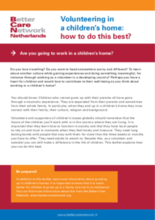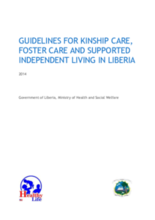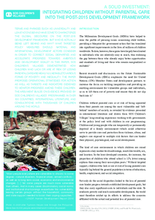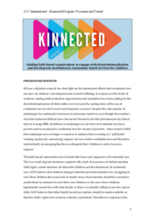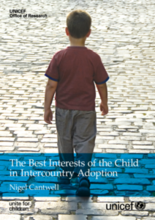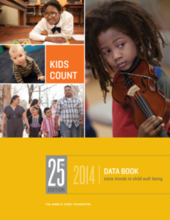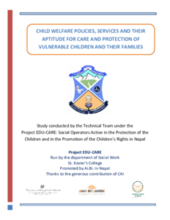Displaying 12541 - 12550 of 14579
This leaflet was developed by the Working Group ‘Quality of Care’ of Better Care Network. It is published by Better Care Network Netherlands. The leaflet provides useful information on child development and children’s care for those planning to volunteer at orphanages in developing countries.
This animated video, produced by Save the Children, tells the story of Suman, a boy whose mother sends him to a care center as she is having difficulty caring for him.
This Human Rights Watch report gives a detailed overview of the situation faced by children with disabilities in orphanages in Russia.
The Guidelines for Kinship Care, Foster Care and Supported Independent Living in Liberia are intended to provide harmonized national guidance for child welfare practitioners in order to improve the quality of family-based alternative care services in Liberia, particularly for children without appropriate care (CWAC).
In this paper, SOS Children’s Villages demonstrates how children who lack or are at risk of losing parental care are highly vulnerable to various forms of poverty and inequality. The paper proposes operational strategies for action as well as targets and indicators designed to monitor progress among these children.
The Kinnected program, developed by the Australian Christian Churches International (ACCI), is working toward the reduction of use of residential care of children and aims to assist children within the context of their families. This document provides an outline of the program and an overview of the lessons learnt.
This study, conducted by Nigel Cantwell and UNICEF, seeks to answer the question: “what is it that enables a policy, process, decision or practice to be qualified as either respectful or in violation of the best interests of the child in intercountry adoption?”
The KidsCount Data Book for 2014 is produced by the Annie E. Casey Foundation. It is the 25th edition of this data book, which measures state trends and demographics in child wellbeing in the United States.
The Technical Team under the Project “EDU-CARE: Social Operators Active in the Protection of the Children and in the Promotion of the Children’s Rights in Nepal” reports on the child care practices, policies, and programs currently in effect in the country.
This report is based on a synthesis of eight assessments of the implementation of the Guidelines for the Alternative Care of Children (“the Guidelines”) in Benin, Gambia, Kenya, Malawi, Tanzania, Togo, Zambia and Zimbabwe.

